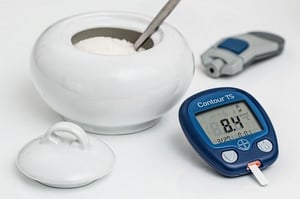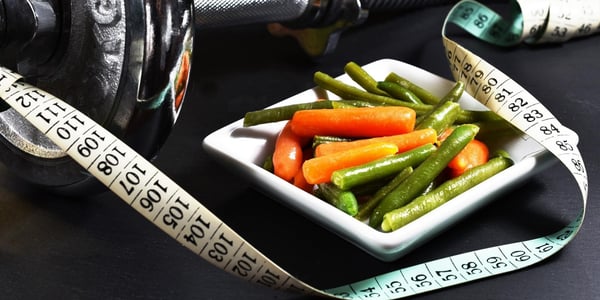Behind only water, tea is the most popular drink in the world. But when you take a sip of tea, are...
10 Changes You Can Make to Reduce Inflammation
Inflammation is part of the body's defensive mechanism. When a cut swells up and turns red, that's inflammation healing you at work. However, it can contribute to various health issues, including cardiovascular disease, diabetes, arthritis (including psoriatic arthritis), cancer, and even depression when it goes into overdrive. It is worth noting that these health issues are also sparked by many factors, such as poor diet, smoking, lack of sleep, etc.
When the immune system is activated without an illness or injury to combat, an inflammatory response may happen. The cells of the immune system that usually defend us begin to damage healthy arteries and joints because there is little to repair. When you do not eat a proper diet, do not get enough exercise, or have too much tension, the body reacts by increasing inflammation. Over time, chronic inflammation may have detrimental effects.
Now, let's take it a step further and look at tips to reduce unnecessary inflammation.
Top 10 Tips to Naturally Reduce Inflammation
-
Eat More Anti-Inflammatory Foods
Diet plays a crucial role in the health and wellness of the body. Making healthy choices to include fresh vegetables and fruits in our diet can significantly help to curb inflammation. Eat more fruits and vegetables and omega-3 fatty acid-containing foods. Cold-water fish, including salmon and tuna, and tofu, walnuts, flax seeds, and soybeans are some of the best sources of omega-3s. Grapes, blueberries, celery, tea, olive oil, garlic, and several spices such as ginger, rosemary, and turmeric are anti-inflammatory as well.
-
Reduce the Intake of Inflammatory Foods
It doesn't stop at eating anti-inflammatory foods. The benefits of that new diet will be minimized if you continue to eat other foods that cause inflammation. Red meat and foods with trans fats, such as margarine, corn oil, deep-fried foods, and most processed foods, are inflammatory and should be avoided.
-
 Manage Blood Sugar Levels
Manage Blood Sugar LevelsLimit carbohydrate-heavy foods with high-fructose corn syrup. Replace rice, pasta, white bread, and foods made with white sugar and flour.
-
Prioritize Exercise
You need to make time in your busy schedule to exercise more. Although daily exercise is ideal if you want to manage or avoid all health conditions, it is understandable that some days there is not enough time for a full-blown workout. Yet, with a little time off work, you can easily take a stroll around the block. Results from a recent study, however, indicate that having just 20 minutes of activity decreases inflammatory blood markers. So, lace your shoes up and get started!
Exercising is not only for the young. Older adults also need to exercise. Regular exercise is an ideal way for inflammation to be avoided. Create time for 30 to 45 minutes of aerobic exercise and at least four to five days a week of 10 to 25 minutes of weight or strength training. -
Watch Your Weight
Overweight people have a higher tendency to experience inflammation. Losing weight can help to reduce inflammation. By increasing your activity levels, you can create a more sustainable solution to combat unnecessary inflammation. Performing about 2+ hours of moderate-to-vigorous daily activities such as yard work and household chores can help lose weight. If you are serious about losing weight, it is recommended to speak with your doctor before starting a new plan.
Have you already lost weight? Click here to learn more about how to keep it off! -
Control Your Stress
 Chronic stress can also lead to inflammation. If you are suffering from stress, you can use meditation, guided imagery, yoga, or other tools to help relieve it.
Chronic stress can also lead to inflammation. If you are suffering from stress, you can use meditation, guided imagery, yoga, or other tools to help relieve it.
We may not be able to alter all of the difficult situations we face in life, but by learning to handle stress better, we may improve our reactions and perceptions. -
Get Enough Rest
In a report from Ohio State University, couples with insufficient sleep started quarreling, and inflammation rose sharply.
According to the study, if both partners received less than seven hours of sleep the previous two nights, the couple was more likely to argue or become hostile. With that, the levels of two known inflammatory markers rose by 6% for each hour of sleep lost. Some couples saw responses as high as 10%! Insufficient rest can make you more susceptible to stress, which can lead to inflammation. The good news is that using healthy conflict-resolution techniques can benefit both partners.
Learn more about sleep! -
Take a Break From Alcohol
 Excessive alcohol has adverse effects on health. If you are fond of having a nightly drink or glass of wine, try taking a break, as it will help reduce inflammation. This does not have to be long-term, but it allows the body to calm down and decrease established inflammation while making other anti-inflammatory diet and lifestyle changes.
Excessive alcohol has adverse effects on health. If you are fond of having a nightly drink or glass of wine, try taking a break, as it will help reduce inflammation. This does not have to be long-term, but it allows the body to calm down and decrease established inflammation while making other anti-inflammatory diet and lifestyle changes. -
Be Kind to Your Gut
There is a lot of hype about probiotics, but are you already helping those healthy microorganisms living in your body? Eliminating added sugars and trans fats and choosing mostly whole foods and minimally processed foods can preserve beneficial bacteria. Ingredients rich in probiotics are also worth eating every day. In the long run, strengthening the intestinal microbial barrier is one of the cornerstones of reducing inflammation.
-
Drink Green Tea
 If your choice is to drink coffee, you may not fancy a cup of tea, especially green tea. However, green tea is full of powerful antioxidants that help eliminate inflammation. Green tea can also inhibit oxidative stress and possible inflammation caused by it. People who drank 500 mg of green tea polyphenols (approximately 4 to 6 cups of tea) a day had their oxidative stress levels reduced by half after 24 weeks. Click here to learn more about the benefits of drinking tea!
If your choice is to drink coffee, you may not fancy a cup of tea, especially green tea. However, green tea is full of powerful antioxidants that help eliminate inflammation. Green tea can also inhibit oxidative stress and possible inflammation caused by it. People who drank 500 mg of green tea polyphenols (approximately 4 to 6 cups of tea) a day had their oxidative stress levels reduced by half after 24 weeks. Click here to learn more about the benefits of drinking tea!
Let us know in the comments below - how do you help reduce your inflammation?







